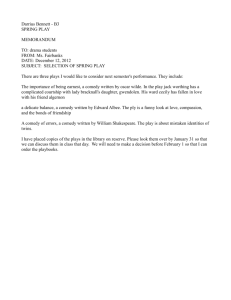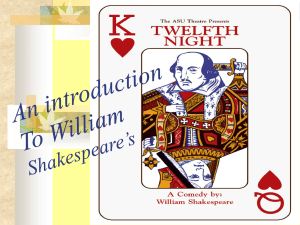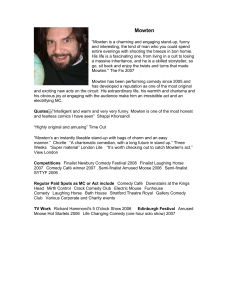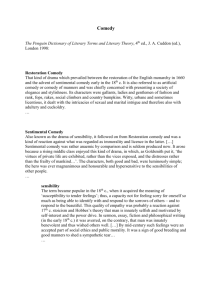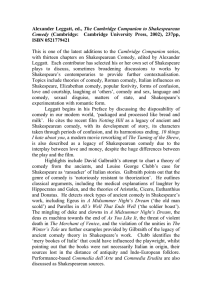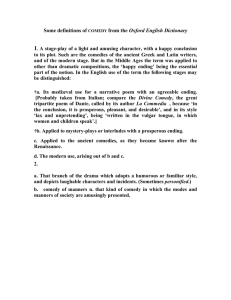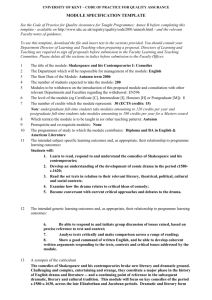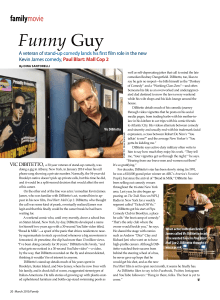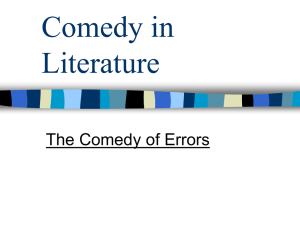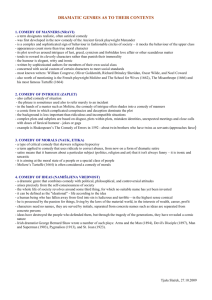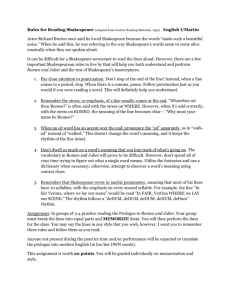SHAKESPEARE IN LOVE
advertisement
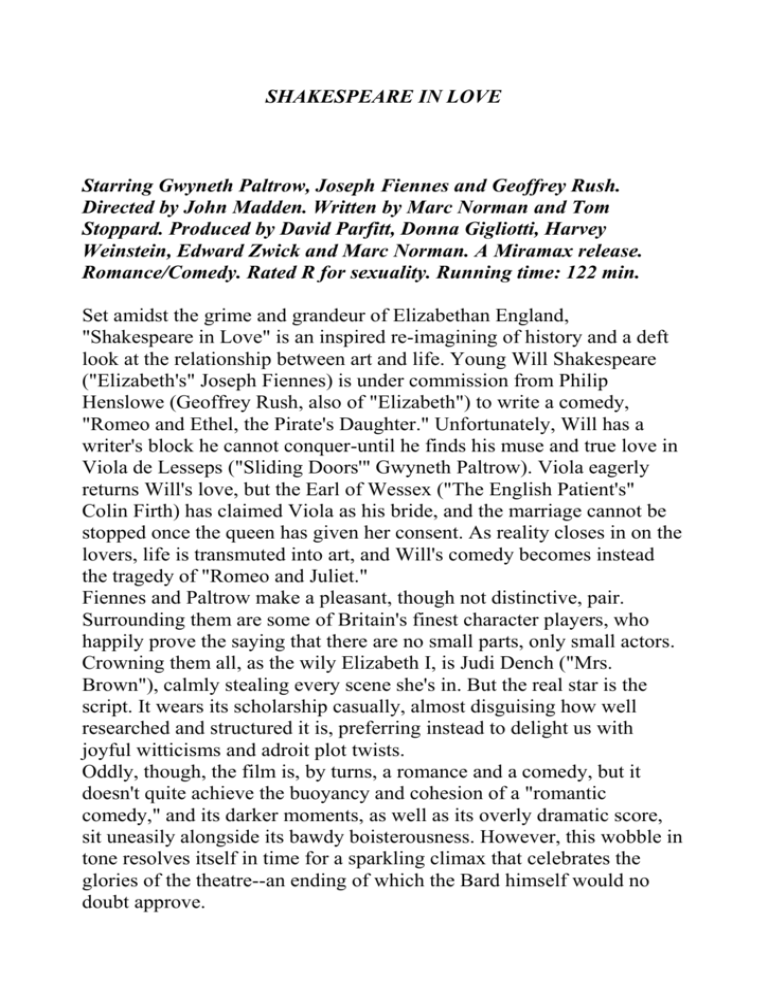
SHAKESPEARE IN LOVE Starring Gwyneth Paltrow, Joseph Fiennes and Geoffrey Rush. Directed by John Madden. Written by Marc Norman and Tom Stoppard. Produced by David Parfitt, Donna Gigliotti, Harvey Weinstein, Edward Zwick and Marc Norman. A Miramax release. Romance/Comedy. Rated R for sexuality. Running time: 122 min. Set amidst the grime and grandeur of Elizabethan England, "Shakespeare in Love" is an inspired re-imagining of history and a deft look at the relationship between art and life. Young Will Shakespeare ("Elizabeth's" Joseph Fiennes) is under commission from Philip Henslowe (Geoffrey Rush, also of "Elizabeth") to write a comedy, "Romeo and Ethel, the Pirate's Daughter." Unfortunately, Will has a writer's block he cannot conquer-until he finds his muse and true love in Viola de Lesseps ("Sliding Doors'" Gwyneth Paltrow). Viola eagerly returns Will's love, but the Earl of Wessex ("The English Patient's" Colin Firth) has claimed Viola as his bride, and the marriage cannot be stopped once the queen has given her consent. As reality closes in on the lovers, life is transmuted into art, and Will's comedy becomes instead the tragedy of "Romeo and Juliet." Fiennes and Paltrow make a pleasant, though not distinctive, pair. Surrounding them are some of Britain's finest character players, who happily prove the saying that there are no small parts, only small actors. Crowning them all, as the wily Elizabeth I, is Judi Dench ("Mrs. Brown"), calmly stealing every scene she's in. But the real star is the script. It wears its scholarship casually, almost disguising how well researched and structured it is, preferring instead to delight us with joyful witticisms and adroit plot twists. Oddly, though, the film is, by turns, a romance and a comedy, but it doesn't quite achieve the buoyancy and cohesion of a "romantic comedy," and its darker moments, as well as its overly dramatic score, sit uneasily alongside its bawdy boisterousness. However, this wobble in tone resolves itself in time for a sparkling climax that celebrates the glories of the theatre--an ending of which the Bard himself would no doubt approve.
